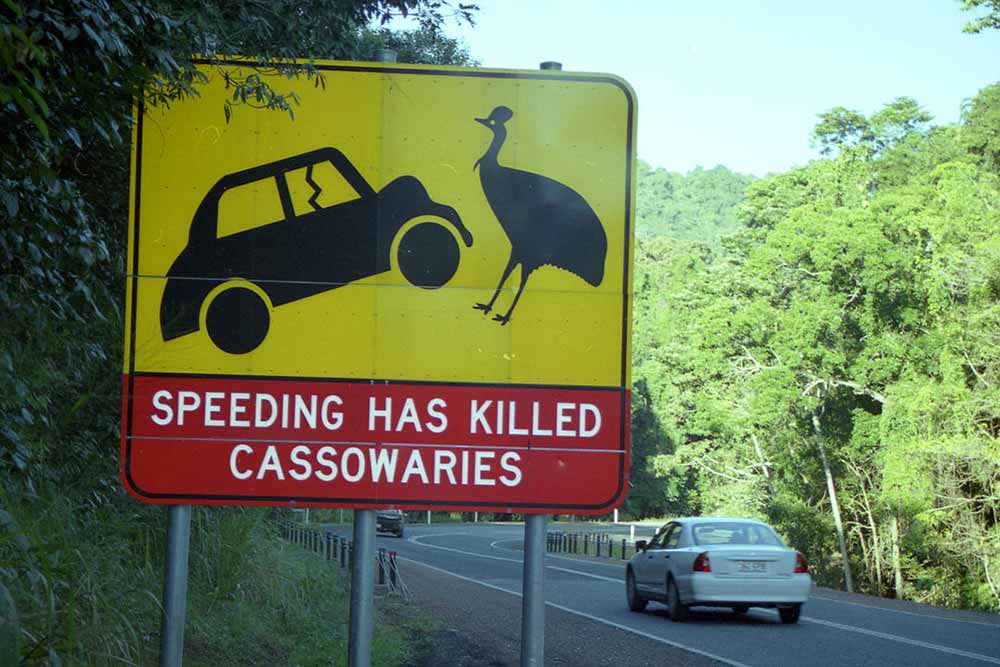
Image: Snowmanradio
The Queensland government has initiated a trial of ‘vehicle-activated signage’ (VAS) on a Far North Queensland road to help protect an iconic species from being hit by passing motorists.
This innovative technology is a new one for the region, which will be trialled on Tully-Mission Beach Road in an effort to protect cassowaries from the danger of crossing the road and facing the high risk of a road accident.
Queensland Main Roads and Road Safety Minister Mark Bailey said the recent deaths of three juvenile cassowaries highlighted the need to take action to help protect the species.
Cassowaries are a flightless bird that are endangered in Queensland. A 2006 assessment found that only 20-25 per cent of the former cassowary habitat remains.
The assessment studies 140 cases of cassowary mortality and found that motor vehicle strikes accounted for 55 per cent of them.
Not only that, they have commonly faced other life-threatening hazards such as hunters, entanglement in wire, dog attacks and tuberculosis.
Minister Assisting the Premier on North Queensland Coralee O’Rourke said the vehicle-activated signs, associated static signage and linemarking will be trialled in the vicinity of the Lindsay Road intersection.
“The section where the VAS will be trialled was identified by the community as a cassowary vehicle strike hot spot,” Ms O’Rourke said.
“Protection of cassowaries is an important, challenging and complex issue and I am very conscious of the need to take action.”
Ms O’Rourke said it is vital the community and government works together to try to find effective and practical solutions to this issue.
The vehicle-activated signs alert motorists they are in a known cassowary crossing area.
“The signs will light up when a motorist is over the speed limit. This will alert motorists to reduce their speed and take more care,” Ms O’Rourke said.
“Vehicle speeds will be monitored before and during the trial and the information gathered will help to understand the effect the signs have on driver behaviour and vehicle speeds.”
It’s not just in Far North Queensland where this technology could be trialed.
Anyone who’s driven in and out of Canberra will have the images etched into their memories of roadkill wombats and kangaroos at the side of the road.
Such technology being customised to those regions that lead into the ACT might be worth considering as they might be useful to helping to prevent road accidents involving local wildlife.





